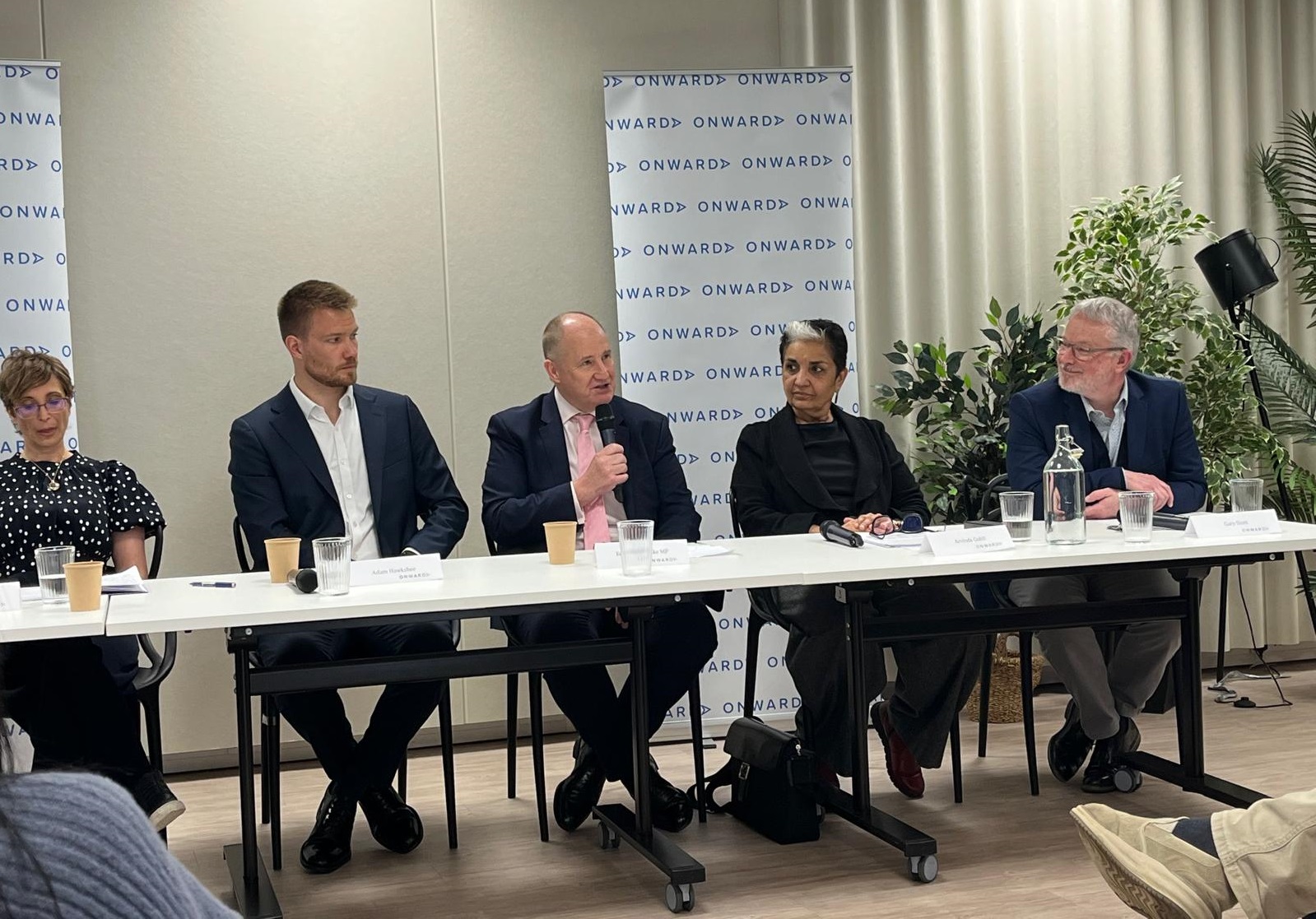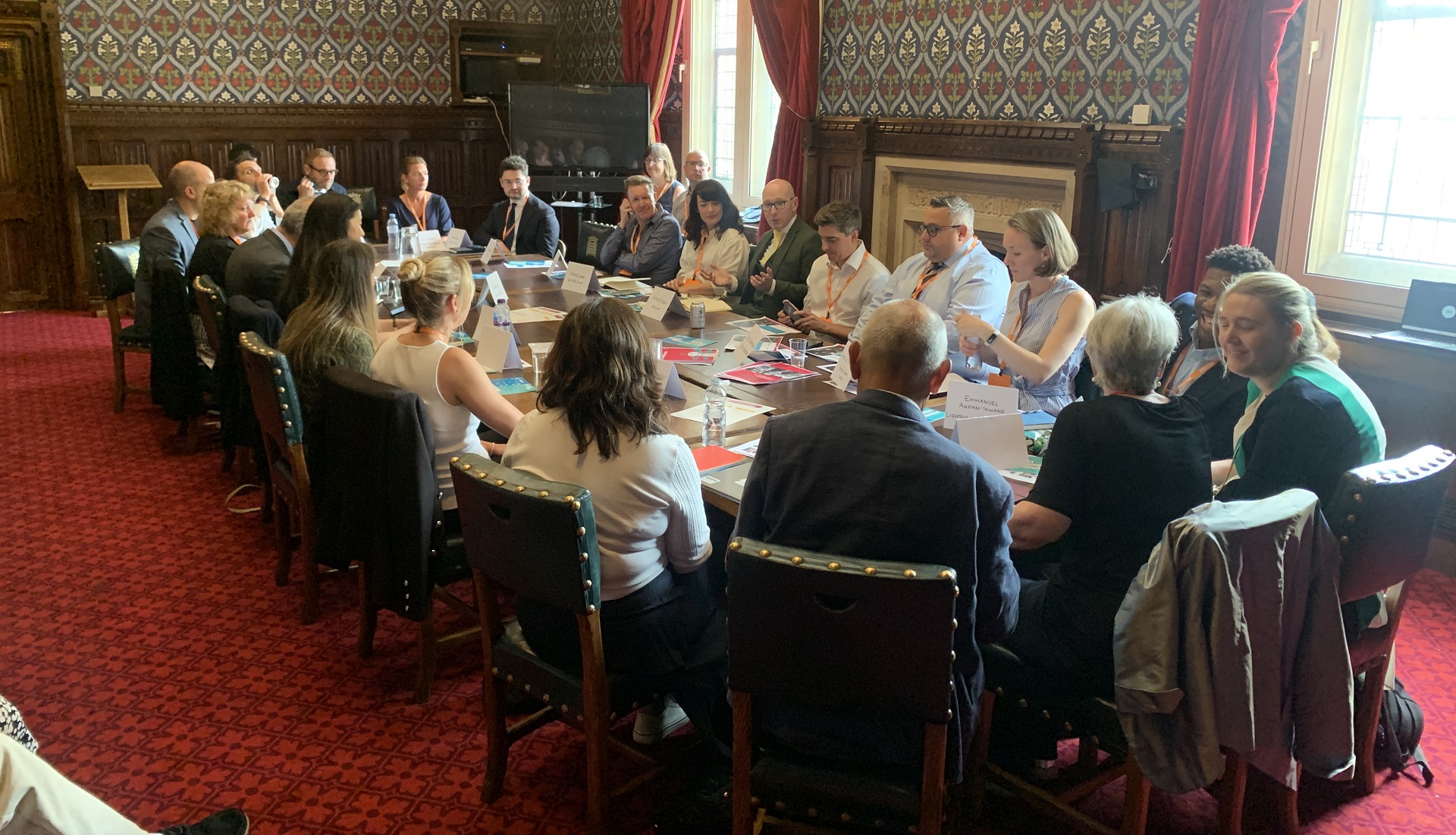News and views
Business with Purpose: How social enterprises build a more resilient economy

We hosted an event with centre-right think-tank Onward this week to explore how social enterprises and other mission-led businesses can strengthen not only our economy but wider society, as part of our Future Economy Alliance campaigning to push our way of working up the policy agenda.
Our Alliance chair Arvinda Gohil OBE joined a lively panel discussion including the Minister for Enterprise, Markets and Small Businesses, Kevin Hollinrake MP; Conservative Party candidate for South Norfolk, Poppy Simister-Thomas; CEO of NatWest Social and Community Capital, Victoria Papworth; and Executive Chairman of the social enterprise Community Shop, Gary Stott. The event was chaired by Adam Hawksbee, Deputy Director at Onward.
Panellists discussed the power of mission-led organisations to address pressing challenges and the barriers keeping the sector from realising its potential, with a number of common themes emerging from the debate. You can read key insights below or watch a recording of the whole session here:

Social enterprises are businesses
Social enterprises form a key part of the business landscape, with Minister Kevin Hollinrake pointing out that there are more than 100,000 of them in the UK making a significant contribution to GDP. He stressed that “business and social enterprise are indivisible”, and the support available for traditional businesses should be relevant for those set up for a social or environmental purpose.
Arvinda Gohil cited the huge impact of mission-led businesses, which now represent around 5% of UK businesses, creating 4 million jobs and re-investing more than £1bn of profits into communities. With 22% of social enterprises working in the most deprived areas in the UK, they are creating opportunities and reducing inequalities in the areas which need them most.
Social enterprises are at the heart of local communities
The discussion highlighted how social enterprises, co-ops and community businesses are vital to growing local economies – often running community assets and creating jobs or other vital opportunities for residents. Poppy Simister-Thomas talked about how social enterprises can “defy some of the economic constraints that big business has”, focusing on their strong community links and how many run local institutions like shops and pubs at a time when many businesses are shutting. She was also critical of the ESG efforts of some big corporates, which can appear as just a “nice to have” whereas social enterprises bring a “clarity of purpose” to their operations.
This emphasis on community was brought to life by Gary Stott explaining how his social supermarket is reducing food poverty, bringing people together and supporting them to transform their lives. A business set up to “build strong individuals and confident communities”, its shops sell discounted products for those receiving welfare support and run community kitchens with food at low prices, as well as delivering personal development programmes to help people find work. All their 12 stores are in areas of high deprivation and 53% of members move on within a year, as their model is fundamentally about supporting people to thrive independently.
Access to finance is key
Whilst Community Shop has built financial resilience funded by its members, the panel pointed out the importance of access to funding. Victoria Papworth talked about how NatWest Social and Community Capital exists to give funding to mission-led organisations who have been rejected by mainstream finance, highlighting the importance for funders to build relationships with the enterprises they are looking to support. She also hinted at the power dynamics inherent in the investor/investee relationship, stating that “social enterprises need to be ceded power and agency by funders” and acknowledging how “challenging and worrying” questions around debt and loans can be for social enterprises.
The Minister agreed that access to finance was “the number one issue” for small businesses, mentioning the Government support that exists in this area and pointing out the importance of alternative finance providers such as community development finance institutions. This was picked up on in the Q&A session, with discussions around how we transform banking through ideas like a Community Investment Act and regional banking systems.
Issues around procurement
The barriers social enterprises still face when applying for public sector contracts was another key theme. Poppy stated that “procurement processes are often slow and difficult for small businesses to engage with, resulting in the domination of big players like Serco and Capita”. She outlined an issue raised by our Social Value 2032 Roadmap, whereby scoring penalises bidders with core purpose delivery against those adding it for bid purposes, and spoke of social enterprises being used in supply chains as ‘bid candy’.The Minister highlighted features of the 2023 Procurement Act designed to make it easier for small and mid-size enterprises, such as streamlining processes around things like indemnity insurance so that organisations only have to put this in place if successful in winning a product.



